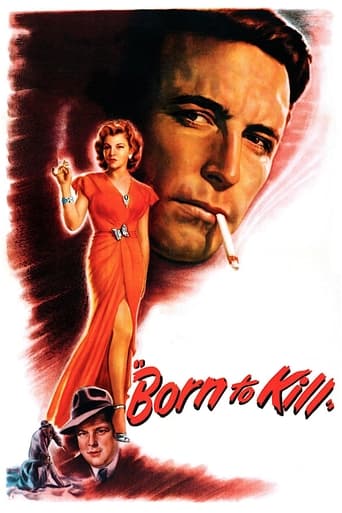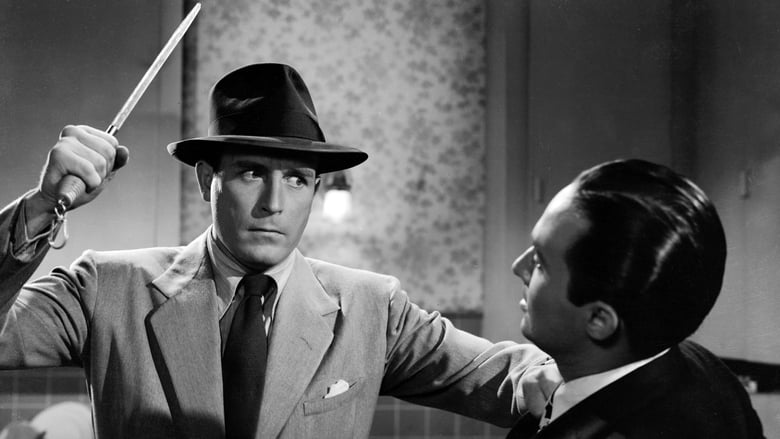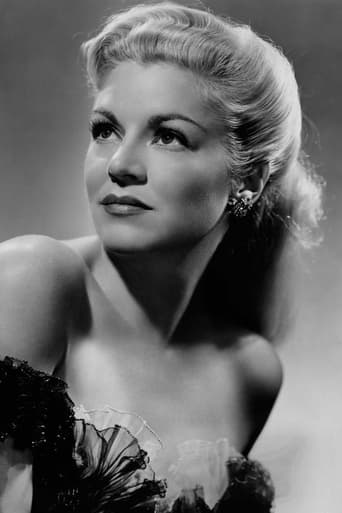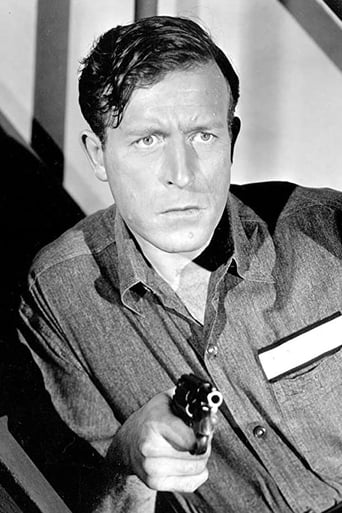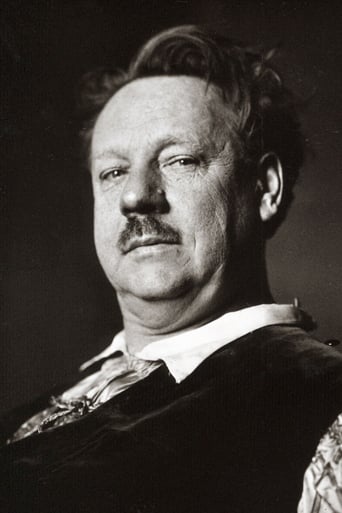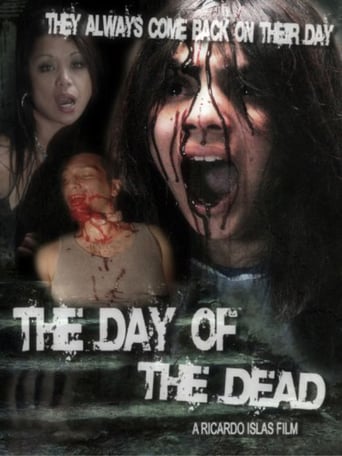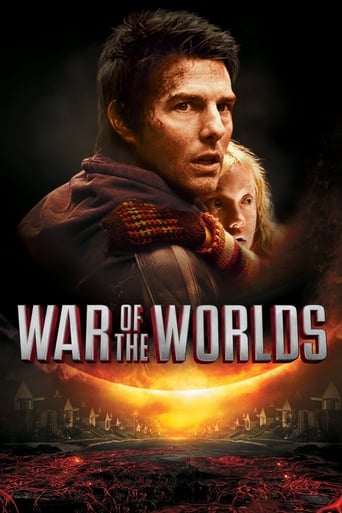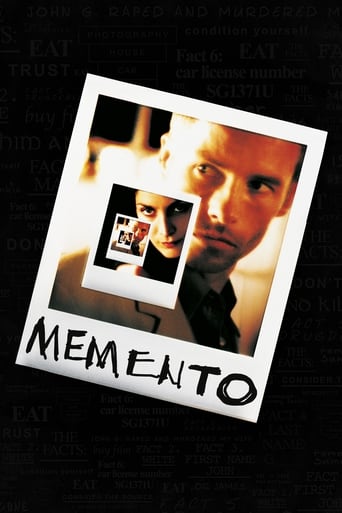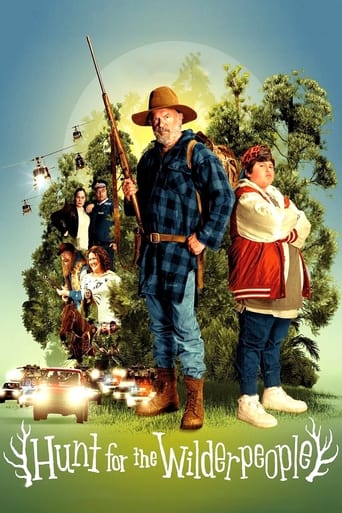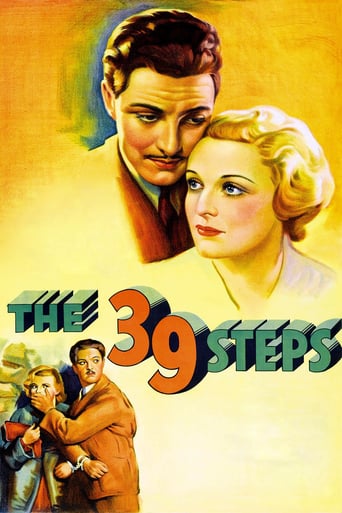Born to Kill (1947)
Helen Brent has just received a Reno divorce. That night, she discovers her neighbor Laury Palmer and a gentleman caller murdered in Palmer's home. The killer is her neighbor's other boyfriend Sam Wilde, an insanely jealous man who won't abide anyone "cutting in" on him.
Watch Trailer
Cast


Similar titles
Reviews
Excellent and certainly provocative... If nothing else, the film is a real conversation starter.
Great example of an old-fashioned, pure-at-heart escapist event movie that doesn't pretend to be anything that it's not and has boat loads of fun being its own ludicrous self.
The biggest problem with this movie is it’s a little better than you think it might be, which somehow makes it worse. As in, it takes itself a bit too seriously, which makes most of the movie feel kind of dull.
An old-fashioned movie made with new-fashioned finesse.
This is a film with three different titles; it was released in America as "Born to Kill", in the U.K. as "Lady of Deceit" and in Australia as "Deadlier than the Male", a misquotation from Kipling's "The Female of the Species". (Kipling actually wrote "more deadly than the male"). The British and Australian titles refer to the film's main female character Helen Brent, the American one probably to her partner-in-crime Sam Wilde who, pace Mr Kipling, is more deadly than the female. Helen may be callous and amoral, but it is Sam who is the really dangerous one. (Helen never actually kills anyone during the film; Sam kills several people).The action begins in Reno, Nevada, where Helen, a San Francisco socialite, has gone to obtain a divorce. (We never see Helen's husband or learn why their marriage broke down; this detail seems to have been a moralistic touch pandering to those cinema-goers who would automatically assume that any divorcée was a "bad woman"). While in the city she meets, and is attracted to, the handsome Sam, who follows her back to San Francisco. Sam has a motive for leaving Reno, quite apart from Helen's good looks. He has just murdered his unfaithful girlfriend Laury and her lover, motivated less by jealous passion than by an insane obsession with saving face; he will not allow anyone to (as he puts it) "make a monkey" out of him.In San Francisco Sam makes two discoveries. The first is that Helen is engaged to be married. (Indeed, it would appear that she became engaged even before her divorce was finalised). The second is that Helen has a step-sister, Georgia, who is not only equally attractive but also the really wealthy one of the family. Sam therefore starts paying court to Georgia and, after a whirlwind romance, marries her, but their marriage does not prevent him from pursuing an affair with Helen.The film is sometimes described as "film noir" because of its lurid and violent plot, but only a few scenes are shot in the classic expressionist noir style. Much of the action takes place in Helen and Georgia's elegant mansion, making it, in visual terms at least, more of a high society melodrama. Noir tended to be a male-dominated genre with female actors in secondary roles ("Gilda" is perhaps something of an exception), but here Lawrence Tierney as Sam and Claire Trevor as Helen are roughly equal in prominence. The strong female character in a central role recalls "women's pictures" such as "Mildred Pierce", with the obvious difference that the heroine of a "women's picture" was generally someone admirable, or at least likable, and Helen is far from being either of those things.The main problem with the film, in fact, is that none of the characters are particularly admirable or likable. Tierney and Trevor throw themselves into their roles with gusto, and there is a good cameo from Walter Slezak as a worldly, cynical private detective. (Neither his worldliness nor his cynicism prevents him from quoting from the Bible or from well-known hymns; his favourite quotation, taken from Reginald Heber's "From Greenland's Icy Mountains", is "Where every prospect pleases, and only man is vile").The more virtuous characters, on the other hand, are generally weak or inconspicuous. Helen's fiancé Fred tends to fade into the background (although at least he has the sense to call off their engagement when he realises just how heartless Helen is). Audrey Long's Georgia comes across as weak and naïve; if she couldn't spot the arrogant, overbearing Sam as a wrong'un from the start she must have been naïve indeed.The film's other flaw is that characters often act in inexplicable ways. Although the story opens with a double murder, nobody seems to want to go to the police. (Indeed, the police do not make an appearance until the very end). Helen is the first to discover the bodies of Laury and her boyfriend, but for some reason doesn't think that a double killing is worth reporting to anyone. (Why?) Laury's landlady has her suspicions about Sam, but instead of reporting these suspicions to the police she decides to spend her own money in hiring a private detective to investigate. (Why?) Unanswered questions like these mean that the plot is full of holes.Robert Wise was a versatile director, able to turn his hand to a number of different genres. He started his career, for example, with that fine supernatural fantasy "Curse of the Cat People", and among his later hits was "West Side Story", one of the greatest musicals ever made. On the basis, however, of this overheated, lurid melodrama and of some of his other efforts in the genre, such as "The House on Telegraph Hill", I suspect that crime dramas may not have been his forte. 5/10
The screenplay is something Harry Stephen Keeler might have written whilst heavily sedated. There's no back story for the male lead Lawrence Tierney nor for his relationship with Elisha Cooke Jnr; following Claire Trevor he finds her with her half-sister and fiancé. He tells the sister she will be seeing more of him Cut: they're married. Economical or sloppy writing. Three guesses. Lawrence, who was the elder brother of Scott Brady here bears more resemblance to Ray Milland albeit he has the acting ability of an amoeba with learning difficulties. Some of the best performances come from the support in the shape of Walter Slezak's private eye, sans moustache for once, and Esther Howard, looking as though she hasn't drawn a sober breath since she played Jesse Florian in Farewell, My Lovely. Watchable.
By all accounts, Lawrence Tierney (RESERVOIR DOGS) was a hellraiser both on and off the screen in Hollywood. He lives up to his fearsome reputation by playing an ice-cold, larger-than-life and incredibly ruthless killer in LADY OF DECEIT (original title: BORN TO KILL), a film noir with an absolutely stunning first ten minutes to recommend it.A couple of these RKO programmers have spellbound me with twist opening scenes, but the one here blew me away. Sadly, there's no way the rest of the film could ever hope to live up to that opening potential, but it is still a piece of solid entertainment, with plenty of story to fill up the running time and all manner of hard-boiled dialogue and ruthless characters out for their own gain. It may never surprise you again after that opening but it does hold the attention nonetheless.Tierney is inevitably the guy who the whole thing hangs upon, and he's truly brilliant - and chilling at the same time. Claire Trevor gives him a run for his money as the titular femme fatale, who must be one of the most morally murky women seen in a film from an era that's particularly known for them. There's also time for nice supporting turns for both Walter Selzak as a gumshoe and Elisha Cook Jr. as a weaselly type. LADY OF DECEIT is a fine example of the film noir genre and fans will lap it up.
Born to Kill is one film noir that surely deserves its title. Lawrence Tierney plays a ruthless, psychopathic character named Sam Wild. That he was 'born' to kill is confirmed in the first few moments of the picture, when the man kills an innocent couple out of sheer jealousy and sudden outburst of aggression.The only person to see the bodies lying lifelessly on the floor is a beautiful woman Helen Trent (Claire Trevor), whose divorce has just come through, but she really doesn't want to get involved in the whole murderous affair and decides not to tell anybody about what she saw. The whole narrative changes abruptly, as the two characters meet on-board of a train bound for San Francisco, and instantly fall in love. Realizing that Helen is already married to another man, Sam decides to fall for her wealthy, tender and enthusiastic half-sister Georgia (Audrey Long), just to make Helen jealous and unhappy. Even though they're both in relationships, their whopping yet disastrous love flourishes. Unfortunately, the detectives starts snooping around in order to find the double murderer. Enter Marty (Elisha Cook Jr.), Sam's old pal, who arrives in San Francisco and brings the cops along with him. In a sudden and unexpected turn of events, Marty is found dead and the two doomed lovers continue their illicit love affair. Even when Helen is sure that Sam is the true killer, she doesn't stop loving him. In the intense finale Sam is finally caught and faces arrest, but he decides that he won't back down now and commits the one last crime...Born to Kill is a rather uneven, yet distressingly macabre melodrama with a nifty storyline and a typically-noirish mix of failed romance and cold-blooded murder. Though it's hardly original in its themes, it still entangles the audiences with its tense, moody atmosphere and Lawrence Tierney's most sinister role ever.

